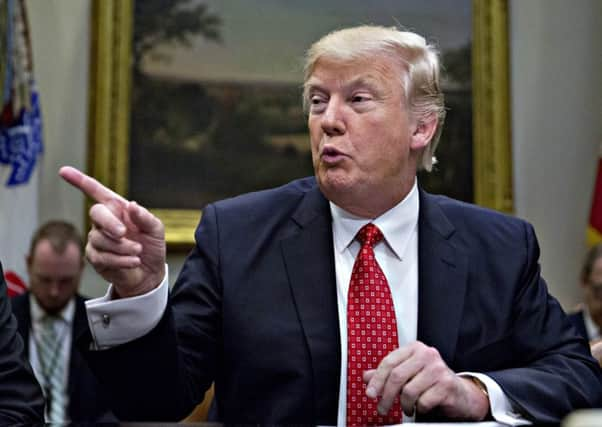Lindsay Mackenzie: Trump's lesson in American history


In trying to explain what might be happening, commentators have turned to comparisons; invoking Chavez, Berlusconi, Brexit and the rise in support for populist radical-right parties across Europe. Indeed, there are some helpful parallels. Brexit’s Leave campaign was dominated by vague arguments of sovereignty couched in nationalism (“take back control”).
There are strong similarities between the European radical-right and the new president’s methods. We see it in Trump’s nativism (his exclusionary nationalism), authoritarianism (his penchant for law and order) and populist rhetoric (his repeated claim to speak for the people in the face of a corrupt elite). Trump’s order to publish a weekly list of crimes committed by immigrants is straight from their playbook. His attacks on the media, framing them as the enemy, echoes the likes of Hungary’s Viktor Orbán. The day after Trump’s inauguration, Geert Wilders, leader of the right-wing Dutch Party for Freedom, remarked: “Yesterday a new America... tomorrow a new Europe.”
Advertisement
Hide AdAdvertisement
Hide AdYet Trump is also a very American phenomenon that can be traced back through US history. The 1882 Chinese Exclusion Act saw Chinese labourers banned from entering the US (it wouldn’t be repealed until 1943). Twenty years later something similar was proposed for Japanese workers, regarded as spies collecting information for the enemy. From the 1920s to 1965, Congress restricted immigration from southern and eastern Europe, turning away Jews as potential German agents. It’s not a pleasant reminder.
Trump’s heavy dose of scepticism towards international institutions and norms (from Nato to climate change) has a history too. It echoes inter-war America when internationalism was regarded as conspiratorial. Trump’s “America First” recalls a movement of the same name that saw US military intervention abroad as not only against American interests, but designed to weaken the state.
Over 20 years ago a fringe Republican called Pat Buchanan ran for president. “We need a sea wall to stop the tidal wave of illegal immigration and narcotics sweeping over our southern border…” he said in his 1996 campaign. He showed disdain for international organisations and “corrupt Washington”. His solution was to impose tariffs and tear up the North American Free Trade Agreement in an effort to stop factories and jobs leaving the US. His platform was built on what he called economic patriotism and the restoration of national heritage. It’s eerily familiar.
Trump’s policy agenda has focused on radical Islamism, trade, and immigration. This has resulted in a chaotic ban on refugees and citizens from seven Muslim majority countries (now rejected by the federal appeals court), withdrawal from the Trans-Pacific Partnership and a continuing spat with Mexico over building a border wall. Combine this with a militarism which provokes China, talk of taking Iraqi oil and putting Iran “on notice”, and you have a leadership which looks increasingly unpredictable. It seems Trump’s idea of American exceptionalism is not defined by an outward-looking spread of internationalist values and ideas. Instead it is one of perverse, inverted interpretation; of shameless, self-defeating self-interest.
Yet one must be careful not to caricature him as some autocratic copy, ignoring US history and its distinct political shifts.
Some of Trump’s supporters see him as a restorative figure – resetting the clock on what they regard as an American experiment gone wrong. Quite what this new incarnation will look like in four years remains unclear. Trump won by a small margin in a strong democracy. Just how strong will now be tested.
Lindsay Mackenzie is leading European security research for the Scottish Global Forum. www.scottishglobalforum.net